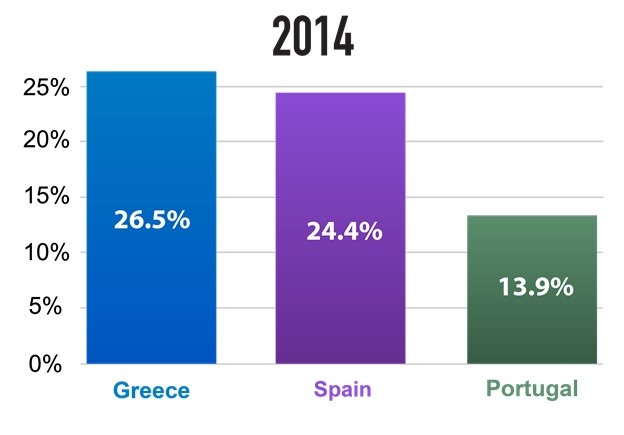Bruges Group Blog
How the COVID-19 Pandemic Has Affected the Unemployment Rate
Since the day the World Health Organization (WHO) declared COVID-19 as a global pandemic, everyone on the globe has felt its devastating effects. Nations in the EU were undoubtedly among the most affected by the pandemic, lockdowns still in effect in some places at the time of writing.
To stop the spread of this deadly virus, states and governments all over the world undertook various measures. These included the restricting movement to areas with reported cases, and the closure of public places such as schools, churches, and markets. Public events were also prohibited and curfews imposed, not to mention how the public was urged to maintain social distancing, wear face masks, and keep their sanitize (and surfaces) sanitized.
However, regardless of these measures, the effects of the COVID-19 pandemic continue to negatively affect most businesses and workers globally. Businesses aren't able to operate in their usual ways. As a result, most employers can't sustain their payroll, thus being forced to lay off some of their employees, leaving millions of individuals jobless.
The following are some of the ways COVID-19 has affected the rate of unemployment.
1. Sharp Drop in Job ListingsThe concept of unemployment and reduced job opportunities despite impeccable CV writing and portfolio is not something new to most of us. Nonetheless, the situation even became worse in the wake of the COVID-19 pandemic. Most private, as well as public employment services, are undergoing a lot of headaches as of 2021. The demand for jobs keeps sky-rocketing, but there are no jobs available.
Additionally, new job openings don't come easy anymore as they used to. As seen above, the bar graph by Compare the Market reveals that the three countries with the highest unemployment rates since 2014 were all EU countries. Well, the COVID-19 pandemic made things even worse for employees and employers in these countries. This is because of the massive restrictions, travel bans, curfews, and social distancing regulations enacted to keep the virus spread under control. With high levels of economic uncertainty, there is less investment. This means less employment as businesses try to stem their losses, rather than expand their market share, hurting job openings.
2. Closure of Entry-Level Jobs, Internships, and Apprenticeships.This is another COVID-19 effect that has hit many job-seeking individuals in the labor market, especially individuals in their youth. Remember, the youth have always been the most unemployed and underemployed portion of the population in many countries. This does not only affect them financially but also psychologically. As a young individual, once you lose contact with entry-level jobs, internships, and apprenticeships, it can be difficult to progress in your field. Without experience, the entry-level positions become extremely competitive as job vacancies diminish and job seekers expand.
3. Closure of Non-Essential Businesses
As the world is struggling to vaccinate and protect populations from the COVID-19 virus, people are still urged to stay at home when they can. That means many people are not yet able to work if they can work from home, save for the few dealing with essential commodities and services such as food, healthcare, and security. A recent piece by The Guardian showed that in the UK, Britons spent 11.3% less on nonessential goods and services in 2020 compared to 2019. These included things like fancy clothes, traveling, eating out, etc. As a result of that, non-essential businesses have either had to adapt to sometimes unclear regulations or shut down completely. Small businesses have been the hardest hit, forcing both employers and employees across all industries to unemployment.
As mentioned earlier, many self-employed individuals are yet to get back to business. Some businesses in the self-employment sector have managed to stay afloat and thrive amidst the pandemic restrictions, but the most vulnerable ones have collapsed or dwindled into oblivion. We can only hope for the better.
While everyone has felt the catastrophic financial and psychological effects of COVID-19, the good thing is that all is not lost. Many vaccines have been developed, approved, and are in circulation as of Feb 2021. We can only hope the economy hasn't suffered beyond repair due to the virus and a flood back into the market occurs once it is safe to lift regulations, repairing unemployment rates as things get back to normal over time.
Contact us
246 Linen Hall, 162-168 Regent Street
London W1B 5TB
Director : Robert Oulds MA, FRSA
Founder Chairman : Lord Harris of High Cross






